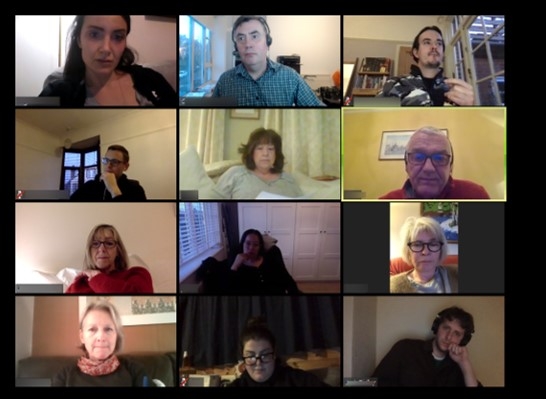

Digital skills have always been important but COVID-19 has made that need more urgent, as people rely on the internet to find information, keep connected, access help and support and receive essential supplies.
For Digital Champions, the current situation gives them a range of new challenges and many want to keep helping learners who need digital skills more than ever in this uncertain time.
One of our Network’s Digital Champions, Caspar Kennerdale helps local residents and community groups at Upper Norwood Library Hub every week as part of his social enterprise ClearCommunityWeb. Following the library’s closure and the subsequent lockdown he continues to help his learners in a virtual way. Here are his three top tips for being a virtual Digital Champion.
- It’s less about learning, more about tools
Right now, people mainly want to understand the difference between the tools they can use to connect online, such as FaceTime, WhatsApp, Skype and Zoom. I’ve been mainly using Zoom for my learning sessions over the past week or so because it is mostly stable and is good for managing privacy as you don’t have to share contact details. It’s also intuitive for most people to use and is free for one to one calls.
- Help them understand what they’re looking at
It’s important to help people feel comfortable with what they’re doing online before they actually do it. For example, ordering an online shop is a massive step for someone who has never done it before and they have so many questions such as will it be delivered on time, will they get everything they’ve ordered and will their card details be safe. Often learners can over-estimate what they need or accidentally buy in bulk and then have nowhere to store it.
Start by helping someone get familiar with the whole concept of online shopping to build their confidence. They can look around a supermarket’s website, comparing products, use it to manage a budget or even create a shopping list they can use themselves or give to a neighbour. Then when they understand it a little more, they’ll feel ready to place an order.
- Pause a little and listen to their fears
People who were struggling with digital technology before the outbreak won’t know the emerging digital skills they need now. This new and unsettling situation is an extra barrier to the barriers they already had. Take time to understand their fears and work out together what aspects of digital technology they can learn to help alleviate some of their concerns. Even if your virtual Digital Champion session is about checking in and just having a chat, that’s more than enough at this time.
More help and resources
More support for virtual Digital Champions is coming soon from Digital Unite. In the meantime we've grouped together our most relevant guides to help people with the digital skills they need right now. Check them out here.